Charley, you swore an oath of blood, my blood and yours, that you would always put the family before anything else in your life. We are calling on you to keep that sacred oath.
— Don Corrado Prizzi, Prizzi’s Honor, 1985
You need to understand that, when you tune in here to History Central, you often encounter the traumas of the past as well as its rainbows; dark longings and furtive weaknesses will inevitably arise as well as our triumphs. Today we reflect on your sordid past in two devastating words.
As I calculate it, there are (out there in the orange-and-black diaspora) many thousands of us from the Classes of 1970 to – brace yourself – 2012 who still cower at the very thought of transgressing upon Miss Nancy’s calm but firm guidance regarding how to fit in to Proper Society. This was memorialized in Mr. Do Bee, a happy insect, and his lachrymose alter ego, Mr. Don’t Bee, who would impart dicta regarding correct behavior, e.g. “Do Bee a dad helper, Don’t Bee a dad interrupter.” The effects of this simple but intimidating approach on 4-year-olds were profound enough that, speaking for myself at least, it has dawned only now that these bee-atific demands had nothing at all to do with morality, only with decorum. What if dad is running a meth lab, a laBreaking Bad? Miss Nancy was blissfully unconcerned.
For this insight, I am grateful to Professor Kwame Anthony Appiah, deep philosopher and recent National Humanities Medal winner, and his extremely accessible but profound 2010 book The Honor Code: How Moral Revolutions Happen. To be honest (a good idea in this context), it had not yet risen to the top of my “Princeton faculty authors” reading stack – Medal of Freedom and Nobel-winning professor emeritus Daniel Kahneman’s brilliant Thinking, Fast and Slow was my current read – but I elected to fast-forward to the Appiah tome when our new president, Chris Eisgruber ’83, assigned it to members of the Class of 2017 for summer reading, perhaps to show them right away that their immense good fortune in admission comes tied to some responsibilities that will follow them around for a good long time, like until they pop up in the PAW Memorials section. And besides, on the upbringing side, virtually all of them were born after Romper Room went to rerun heaven, three years after Rugrats appeared on Nickelodeon. I assume Miss Nancy’s parting words as she flung the Magic Mirror aside in despair were, “Don’t Bee a rugrat.”
Speaking of media trends, since we now live in a branded universe where everything from Rugrats to the Sequester needs a catchy label, this freshman book assignment has been dubbed the Pre-read (derived from Pre-rade, derived from P-rade), to be discussed by the incoming A.G. donors of the Future upon their matriculation. Alums will be able to join in, too, so you might want to take a shot at this profound work yourself and see how/if your own little gray cells are working.
By far the principal message of The Honor Code is that, thanks to the wondrous and infinite perversities of the human experience, there is absolutely no necessary relationship of any system of social honor to basic morality, despite both being arduous creations of the most complex, sophisticated institutions we humans can devise. Each is meant to reflect the highest aspirations of the species – you might reflect for a moment on that being a relative term – and yet in ordinary, mainstream situations they can be jarringly, even disgustingly, contradictory. Appiah points out three historical circumstances in which powerful honor practices were defeated via the forces of morality rising and, in effect, changing the basis of the perception of the practice and thus the demands of a culture’s honor itself. The first was dueling among the European nobility (hellooooooo, Aaron Burr Jr. 1772!); the second, foot binding in China; and the third, the slave trade in the British colonies. I’m still chewing over the third instance, in that I’m not at all sure Appiah made the case for the slave trade having been originally honorable (since it was so overwhelmingly economic) but the first two are perfect examples of homo stupidus – honor duels and foot binding in the upper reaches of society persisted despite being regarded as immoral by every religious authority, and even after having been outlawed.
Two recent popular-culture satires of this insight pop to mind: Monty Python’s Upper Class Twit-of-the-Year Contest (with its peerless peers), and the perverse logic of John Huston’s Prizzi’s Honor, in which Charley Partanna (a wondrous Jack Nicholson) is forced to choose between killing his own wife and “dishonoring” the Family. Appiah calls our attention instead to a jarringly similar honor practice that persists to the present day: “honor killing,” primarily of women, primarily in the Islamic world – but not, it must be pointed out, exclusively those – for flouting social taboos of whatever tribe they are unfortunate enough to be consigned to. Tribal honor and religious morality are unrelated, and in fact often antithetical.
Thank heaven we here in the enlightened new order are not as clannishly myopic as those who go around stoning village adulterers, right? Well ...
Princeton undergrads surely have never matched that brutality, but the immorality of student life and student “honor” practices bear examination. For the most uplifting example, we should note that the creation of the Honor Code in 1893 was a direct result not only of rampant cheating, but the students’ prior unwillingness to rat out the cheaters, i.e. the “honor code” of silence. A call to morality and fairness resulted in the substitution of a new honor structure for the old, and the cycle was broken, strikingly similar to the history of Chinese footbinding that Appiah documents at the turn of the 20th century – virtually the same time.
Other student “honor practices” seem to revolve habitually around subgroup identity, the longest running being those among the classes. Cane Spree evolved from the attempt of the sophomores to prohibit the carrying of stylish gentlemen’s canes by the freshmen in the 19th century, quickly escalating to pitched battles. The next notable belittlement a century ago was the devolution of the freshman-class photo into the Flour Picture, in which the sophs gathered to dump water, flour, rotten fruit, and other detritus on the immobile newbies gathered for their photo. The escalation of that annual event led to the idiotic inclusion of acid, thence rigid administrative controls, thence abandonment (a la the Nude Olympics) in 1926. Forcing the frosh to wear dinks (black beanies) persisted for three decades more but finally died of apathy, along with various periods in which they were forced to wear ugly black ties. Shaving class initials into frosh hairdos went away similarly in the early ’60s.
Having pretty much descended to more tight-knit student groups by mid-century, the amoral honor practices settled into the current pattern, i.e. individual and pledge-group hazing and similar coercive belittling misbehavior. The third issue of the Prince, in September 1876, contains the following contribution from an uncredited student: “ The old custom, commonly known as hazing, of initiating a freshman into the mysteries of College life, is fortunately falling out of practice.” The 562 subsequent citations (seriously, no kidding) of hazing in the Prince, the most recent in 2012, would seem to indicate that sentiment was a tad optimistic. I could obviously cite instance after instance, coercion after coercion, run-ins with proctors, run-ins with police, run-ins with bureaucrats, trips to the ER, but you know what we’re talking here: rugby team initiates in the ’50s and the ’72 bickerees whom we forced to down booze and the SAE freshmen in 2009 sent to a strip club for a beating, on and on. The supposed honor of each bullying social group is clearly at odds with morality, law, fairness, you name it. The perpetrator feels lousy when it’s over. Hazing freshmen is very different from honor killing of adulterous wives in Pakistan, but only in degree and pervasiveness, not in logic.
Expanding on that realization, Professor Appiah’s thorough examination serves to clarify that, should we wish to understand human honor concepts, sociology and anthropology are hugely helpful, but that if we wish to develop a pattern for our own morality and behavior, philosophy and religion may well serve us better. That may be one compelling reason that Chris Eisgruber has put the issue before the entire freshman class.
But perhaps it would be more effective just to say: Don’t Bee a Groupthink Idiot.
This is the first Rally column to appear since the death in August of the great Dick Kazmaier ’52. You have read much since about his admirable character and accomplishments, in his case all true, remarkably. My own thoughts on his Heisman year you can see here. Let me just add at this point that Princeton athletics have somehow generated an aura of exceptional human quality that we’ve seen over the years in dramatic ways, whether in the number 42 retired in honor of Kazmaier and Bill Bradley ’65, the induction of Pete Carril into the Hall of Fame, or the great banner that dominates women’s hockey games, “Make Patty Proud,” not coincidentally in honor of Kazmaier’s late daughter, Patty Kazmaier ’86. College athletics can be a very positive force – something you’d never know to read the press headlines of the last couple of decades – and it is always a comfort for an institution like Princeton, which has spent copious time, treasure, and energy on them over the centuries, to have such a brilliant reminder, and model, as Dick Kazmaier. Dei sub numine viget.



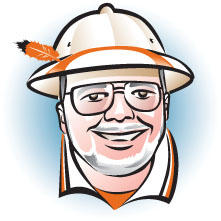
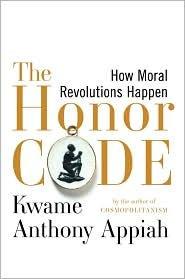
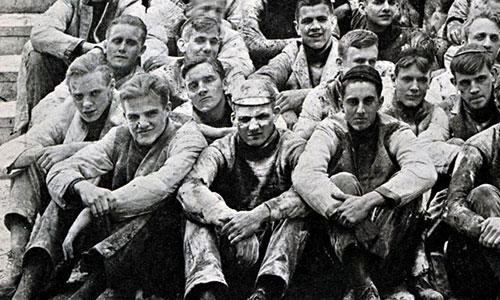
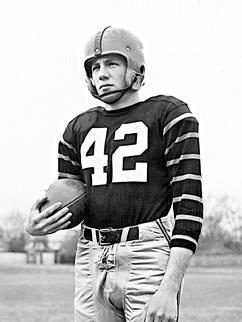




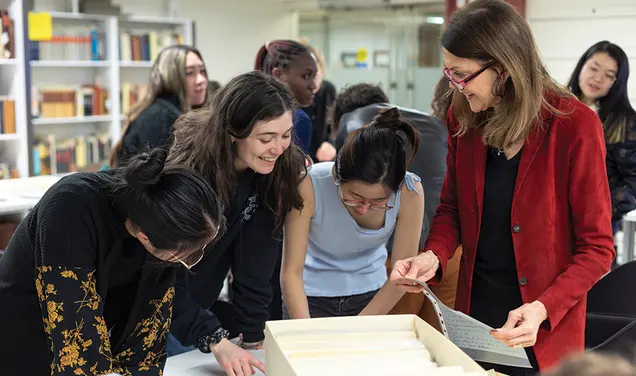


No responses yet